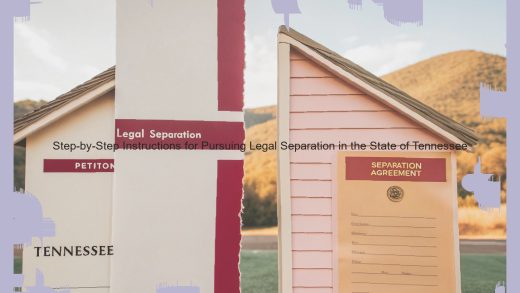An Overview of Pennsylvania Employment Law
Employment law in Pennsylvania is governed by a complex web of federal and state regulations, as well as local ordinances. This article serves as a guide to this system, with a particular focus on new legislation and judicial interpretations. Though there are some key differences between federal and Pennsylvania employment law, they are similar in that they are amended frequently, and the PA Employment Law Handbook is compiled with the most up-to-date information.
At the start of employment, an employee should generally receive a copy of the employer’s standards, rules and regulations, including those employed for timekeeping, payment, vacation, etc., in concert with federal law. Employers who do not post or otherwise distribute relevant policies run risk of being protected concerted activity under Section 7 of the National Labor Relations Act (NLRA), which could result in violations of Sections 8(a)1 and 8(a)5 of the NLRA . Under Pennsylvania law, employers must also generally provide workers with at least one month’s notice prior to making a significant and adverse change in the employee’s compensation or employment status. Laws dictating the timing of pay and benefits delivery also differ according to the status of the employee (e.g. full-time versus part-time).
As a general rule, unless specifically required by law, an employer may terminate a worker at any time without providing notice of cause. The primary exception to this rule is when a worker’s contract delineates a procedure that must be followed when firing the worker or the grounds on which the worker may be fired. In the absence of a contract, however, though a worker may not be fired without notice, the employer may still be subject to liability if the termination violated civil rights laws, the retaliation laws of PA or the federal government, or if the employment position was governed by a collective bargaining agreement.
The Major Employment Statutes in Pennsylvania
The State of Pennsylvania has numerous employment laws that both employers and employees must be aware of. Some of the major employment laws in PA include:
- Wage and Hour Laws: PA’s wages and hours laws are a mix of federal and state law. The Pennsylvania Minimum Wage Act (PMWA) sets the minimum wage and overtime requirements for employees who are not subject to the federal Fair Labor Standards Act ("FLSA"). The minimum wage in PA is currently $7.25 per hour in accordance with the federal minimum wage law. The PMWA limits the number of hours employees may work without requiring overtime. Except for certain exempt employees under the law, employees must be paid overtime at a rate of one-and-a-half times their regular rates of pay for hours worked in excess of 40 hours in a workweek. Other provisions in the state wage law include unpaid wages and wage payment and collection.
- Anti-Discrimination Laws: Anti-discrimination laws at the state level are governed by both federal and Pennsylvania law, covering employment such as hiring, promotion, demotion, job assignments, termination, and other types of discipline. Pennsylvania is one of the few states which does not have a state law equivalent to Title VII of the Civil Rights Act of 1991 ("Title VII"). However, it has anti-discrimination laws enforced by the Pennsylvania Human Relations Commission (PHRC). The PHRC handles employment discrimination and harassment claims by "protected classes" in employment. Thus a Title VII claim must be brought in federal court unless a plaintiff has first made a charge with the PHRC. In addition, the PHRC shields class-action lawsuits against discrimination for certain companies, depending on the size of the company.
- Occupational Safety and Health Regulation: PA’s Occupation Safety and Health Administration (OSHA) requirements are governed by the federal government. The U.S. Department of Labor’s OSHA administers safety and health standards in virtually all private sector establishments in the state. The standards are supplemented by state regulations and enactments.
Pennsylvania Workers’ Rights
The PA Employment Law Handbook offers protections and rights to employees in the workplace. For example, some of these rights include whistleblower protections, leave entitlements, occupational health and safety, and provisions related to wages and hours. This section provides an overview of some of the employee rights under the law.
Whistleblower protections are intended to protect employees who disclose or threaten to disclose information concerning their employer’s activities that they reasonably believe are activities that are illegal or unethical. The statutes that provide these protections include the Pennsylvania Whistleblower Law or the Public Employee Protection Act, among others. Generally, employers must not retaliate against employees for making such disclosures.
Currently, Pennsylvania does not require private employers to provide paid or unpaid leave to employees. However, employers may utilize their discretion to offer paid and unpaid leave to employees. Some leave types are checked under federal law, such as the Family and Medical Leave Act ("FMLA"). Under the FMLA, employers with 50 or more employees must provide leave to employees to care for a newborn, newly adopted child, seriously ill child, spouse, or parent.
Pennsylvania laws also mandate that employees be paid properly and that they receive compensation for their overtime work. The Pennsylvania Minimum Wage Act mandates that most employees 14 years or older be paid at least $7.25 per hour of work in a week or 40 hours or more. Pennsylvania also has laws governing the process by which wages are paid, application of the Minimum Wage Act, payment of overtime wages, examples of exceptions from the Minimum Wage Act, deductions that an employer may take from wages, and wage claims.
Employer Responsibilities and Compliance
Pennsylvania law imposes a myriad of obligations on employers, from requirements for record-keeping and workplace safety to mandates for non-discriminatory hiring and firing practices. The heavy burden of compliance with these state and federal labor laws is often at odds with the far less oppressive, yet still formidable, mandates of the National Labor Relations Act (NLRA). However, the stakes are high for employers that fail to meet Pennsylvania’s additional mandates, which may result in a multitude of sanctions ranging from fines to state-sanctioned business closures.
As set forth by the Pennsylvania Department of Labor and Industry ("Department"), record-keeping requirements generally require every employer in the Commonwealth to maintain certain information regarding employees, such as names, addresses, job classification, rate of pay, and hours worked. In addition, employers must retain the names, addresses, occupational classifications, rates of pay, and specifics about the wages paid to each employee who was terminated. Employers must retain all required payroll records for a period of two years from the date the records were created. The Department has the authority to assess civil monetary penalties against employers who fail to comply with the record-keeping requirements or who fail to provide the Department with requested records and information. Employers are also required to provide a safe and healthy work environment for their employees under The Pennsylvania Health and Safety at Work Act ("SHALWA"). SHALWA requires employers to provide a workplace free from recognized hazards that are causing or likely to cause death or serious physical harm to employees, as well as maintain injury records and report work-related deaths, injuries, and illnesses to the Department.
In addition, the Pennsylvania Fair Educational Opportunities Act ("PFEOA") prohibits discrimination in employment based on an applicant’s or employee’s race, color, sex, religion, ancestry, national origin, age, handicap or disability, relationship or association with an individual with a disability, union membership, and use of lawful products outside of work. Under PFEOA, employers may not directly or indirectly discriminate against any employee or individual seeking employment with the employer. PFEOA also requires employers to keep all applicant and employee records confidential, with limited exceptions. The remedies available for discrimination in violation of PFEOA include lost wages, interest, and expenses incurred in pursuing the claim. In addition, employers found in violation may be subject to the temporary suspension of applicable licenses if the license will assist or enable the employer to continue the discriminatory practice. If an employer has not been found in violation of PFEOA within the past five years, the Department, upon request, may give the employer thirty (30) days’ notice to demonstrate that it is taking corrective action to comply with PFEOA. If the employer is able to do so, the Department may stay any adverse action regarding the applicable licenses.
The Function of the Pennsylvania Department of Labor
The Pennsylvania Department of Labor ("PDOL") acts as the state’s principal agency to enforce employment laws and assist employers and employees. The PDOL, for example, is tasked with enforcing the Pennsylvania Minimum Wage Act of 1968, the Pennsylvania Wage Payment and Collection Law, and the Federal Fair Labor Standards Act. Employers must also comply with federal employment laws such as Title VII of the Civil Rights Act of 1964.
On its website, the PDOL lists a variety of other laws for which it is responsible for enforcement, including the Pennsylvania Human Relations Act (and associated anti-discrimination prohibitions), the Workers’ Compensation Act, and the Unemployment Compensation Law , to name a few.
The PDOL publishes resources on these employment laws on its website. The information available includes flyers to download on drafting appropriate dress codes, diversity, workplace bullying, domestic violence, and other topics. Moreover, the PDOL offers live seminars, webinars, and conferences focused on the requirements of the various statutes it enforces. The PDOL also manages a series of helplines that are manned by individuals who can address questions and concerns about specific employment laws.
Importantly, employers or employees who are unsuccessful at addressing their employment law concerns with the PDOL can appeal the Department’s final decisions to federal or state courts.
Additional Resources for Further Information
Pennsylvania Department of Labor & Industry: The official website of the Department of Labor & Industry features a wealth of information on various employment law issues, including wage and hour laws, unemployment compensation, and safety regulations.
PA CareerLink: This site contains resources and information on job searching, career development, and workforce training programs within Pennsylvania.
Legal Aid of Southeastern PA: For low-income individuals who face legal issues related to employment, Legal Aid of the Delaware Valley can provide guidance and sometimes representation.
Pennsylvania Bar Association: Use the State Bar’s Find Legal Help tool to search for an employment lawyer. The Bar’s website also has a "Book of Pennsylvania Law" section, which provides information on all areas of PA Law, including employment saw.
National Labor Relations Board (NLRB): The NLRB website features information on union-related laws and issues that might impact both employers and employees.
Conclusion: Understanding PA Employment Law
In conclusion, it is vital to remain current on the various laws that govern employment relationships. From payroll practices to workplace discrimination, Pennsylvania labor laws are constantly evolving, and their implications for employers and employees can be significant. Understanding statutes like the Pennsylvania Fair Share Law, the Wage Payment and Collection Law, and the Philadelphia Fire and Health Codes, among others, is crucial for adhering to legal requirements and maintaining the integrity of the employer-employee relationship. The PA employment law handbook is an invaluable resource that allows readers to quickly access and understand the context of each of these statutes in a reasonable time. This guide demystifies part of the complex world of Pennsylvania employment law. Without diving into the minutiae of the specifics of various employment laws , this guide gives you a broader understanding of the obligations that employers and employees have to each other. Whether you are an employer trying to ensure compliance with the myriad of local ordinances surrounding your place of business, or an employee wanting to ascertain your rights, the PA employment law handbook is an essential tool in giving you the information that you need to move forward. As always, however, it is generally prudent to seek legal advice when confronted with particular circumstances of your business or person that may be covered by one of these statutes.



